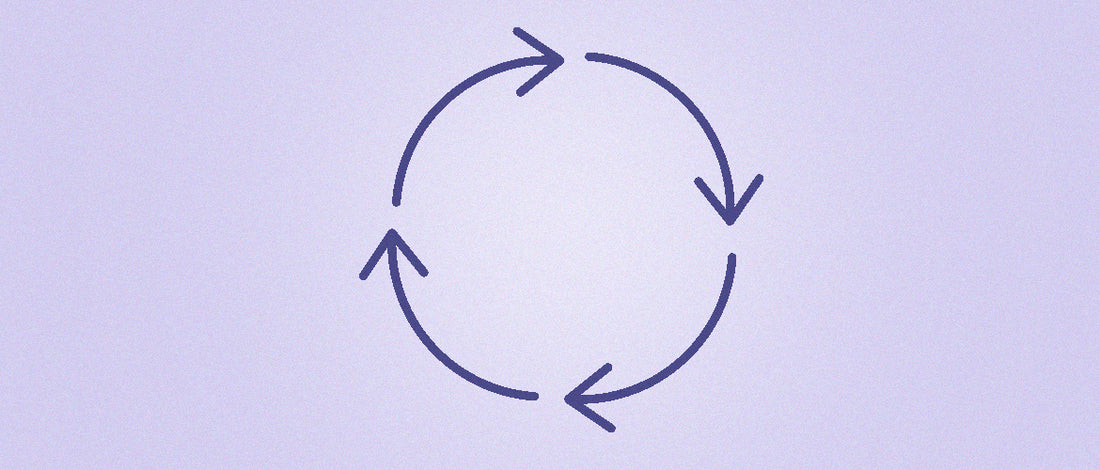Cycle tracking is a super useful tool to help you better understand and connect with your body.
If you aren't familiar with how to track your cycle, it involves things like keeping a record of the length and time of your period, what phase of your cycle you are in, and what symptoms you experience during each phase.
Beyond knowing where you're at in your cycle, we suggest getting familiar with each of the 5 things below to help better understand your body and cycle.
1. How long is your cycle?
As a reminder, your cycle starts on the first day of your period and ends the day before your next period. The first day of your period = day 1. A typical cycle can last anywhere from 21 to 35 days. If your cycle is much shorter or longer than that, it can be worth checking with your doctor to ensure everything is regular.
Also important is whether or not the length of your cycle is consistent. Do you find your cycle usually lasts the same length of time? Or does it fluctuate (i.e. one month it's 21 days, another month is 35 days). Typically it's pretty normal for the cycle the fluctuate by a few days, but drastic fluctuations might be worth discussing with your doctor.
It's also worth noting that irregular cycles are common for people who have just began menstruating within the last couple years (i.e. in the teen years).
2. How long is your typical period?
This might be an obvious one, but keeping track of the length of your actual period is good practice as well. Not only is it just convenient to know how long you can expect it to last, but it can help to keep track of whether it is consistently the same length or not. Typically the menstrual phase lasts from 2-7 days, so anything drastically less or more than that might be worth discussing with your doctor.
3. When do you ovulate?
Pinpointing when you might be ovulating can be tricky. Many cycle tracking apps use the "rhythm method" or the "calendar method" which means they predict ovulation happens about 14 days before your next period. But this isn't a very reliable way to track ovulation.
You can use tools like the basal body temperature method, LH test strips, or tracking cervical mucus to better identify ovulation.
It's also worth noting that the time of ovulation in your cycle can change based on things like stress, travel, environment, etc.
4. How does ovulation make you feel?
It's also worth noting how ovulation makes you feel. In theory, ovulation is typically the time when you feel the most outgoing, your skin is clear, and your sex drive is at it's highest. But this isn't the case for everyone. Some people experience cramping (aka "mittelschmertz") and bloating around ovulation. Keeping track of how you feel during ovulation is helpful so that you can anticipate it each month.
5. How does your luteal phase make you feel?
Lastly, keep an eye on how you feel during your luteal phase. As a reminder, the luteal phase is the time after ovulation and before your next period. Often this is when we experience symptoms of PMS (premenstrual syndrome) and feel bloated, irritable, sluggish, and headaches. It's helpful to know if you experience particularly negative symptoms during the luteal phase so you can give yourself some grace during that time.
Ultimately, taking the time to track your cycle can give you a ton of insight about yourself and your body. Getting familiar with these 5 key things can help you work with your cycle rather than against it, and leverage the superpower that is the female reproductive system!


